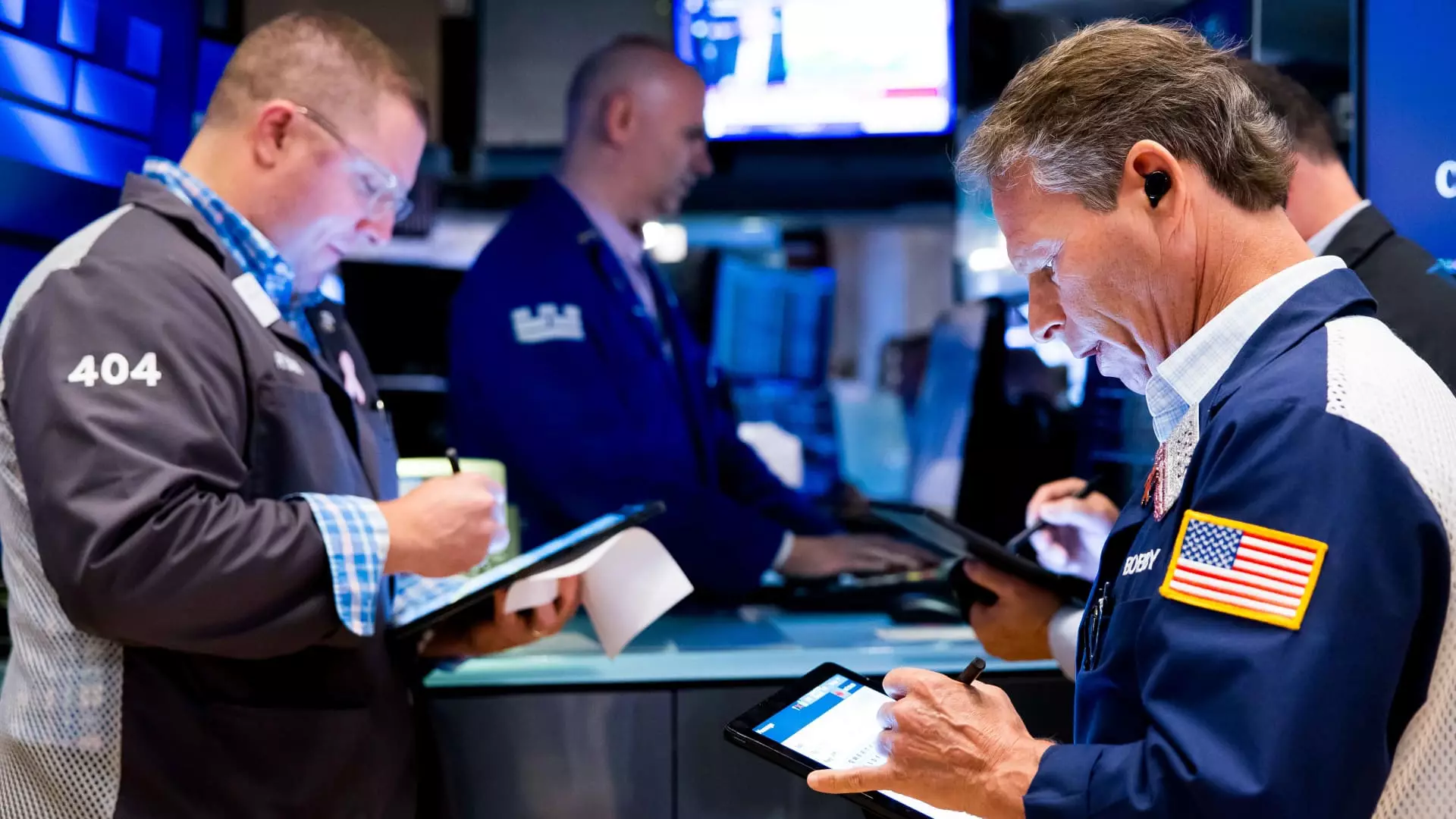Recent market exuberance paints a picture of unparalleled resilience in the U.S. economy, seemingly defying the tumultuous waves of geopolitics and policy shifts. Stock indices hitting record highs after a stronger-than-expected jobs report fuels this narrative of unbreakable growth. However, a closer, more critical look reveals that this optimism may be built on shaky foundations. The booming markets are often driven by short-term sentiment shifts, sentiment that overlooks underlying vulnerabilities such as economic inequality, structural weaknesses, and the unsustainable nature of current policies.
The employment figures that have sent the markets soaring do look impressive on paper—an increase of 147,000 jobs and a drop in the unemployment rate to 4.1%. But are these numbers truly indicative of a robust economy? Not necessarily. These figures can be surprisingly volatile and influenced by seasonal adjustments, revisions, and the quality of jobs created. While the market responds euphorically to these headlines, critical observers should ask: How many of these jobs are stable, well-paying positions? Are they sufficient to sustainably support consumer spending and overall economic health? The truth is, behind the glossy surface, many Americans still labor in precarious employment, underemployment, or part-time jobs without benefits.
The Specter of Policy and Geopolitical Distraction
Despite signs of strength, U.S. political and policy uncertainty continue to cast long shadows. The optimism partly hinges on the assumption that trade disputes and geopolitical tensions will be manageable or short-lived. But this is a perilous assumption. The Trump administration’s aggressive trade tactics and unpredictable diplomatic moves threaten to destabilize the very foundation on which markets are riding high. Investor confidence, often fragile in nature, may quickly erode if trade negotiations deteriorate or if tariffs are reintroduced with force.
Additionally, the Federal Reserve’s stance appears to be cautious, with market expectations favoring no immediate rate cuts but also hinting at a potential slowdown in tightening measures. This hedging suggests that the economy, while currently performing well, remains vulnerable to unforeseen shocks. Relying on a “wait and see” approach of the Fed could be dangerous, as markets tend to overreact to policy shifts and external shocks, leading to sharp declines instead of steady growth.
The Myth of Market Permanence and the Danger of Overconfidence
Equity markets at record highs often breed complacency among investors, who might believe that this trajectory will continue unabated. This overconfidence ignores historical precedents: markets are cyclical, prone to corrections or crashes regardless of positive short-term data. The current rally demonstrates a dangerous tendency to interpret market highs as a sign of inevitable economic prosperity, when in reality it might reflect overvaluation and misplaced faith in policymakers’ narratives.
The passing of major legislation like the tax bill and the ongoing trade negotiations inject some optimism, but these are not guarantees against downturns. Political maneuvering, legislative delays, or disagreements can quickly turn favorable news into disappointment. Moreover, a market solely driven by artificial stimulants—optimism and policy debates—may be blind to structural flaws: rising inequality, debt accumulation, and stagnant wages that threaten long-term stability.
And What of Public Welfare and Democratic Accountability?
The focus on stock market performance often sidesteps the real issues affecting millions of Americans. Growth that benefits the wealthy while leaving average workers behind signals a distorted economy, one that prioritizes corporate profits over social well-being. A market driven by speculative enthusiasm, rather than genuine productivity or innovation, risks creating a bubble that could burst with disproportionate harm to ordinary citizens who have little stake in the current economy’s gains.
Furthermore, the political climate’s volatile nature underscores a troubling trend: policymaking increasingly driven by short-term political gains rather than sustainable economic strategies. The pursuit of immediate wins—be it tax cuts or trade wins—often leaves long-term stability compromised. As governments and markets chase ephemeral successes, the risk of neglecting critical issues like climate change, income inequality, and social cohesion becomes glaringly evident.
The current euphoria, underpinned by strong jobs reports and record stock levels, masks the underlying fragility. Real economic strength demands more than just bullish markets; it requires a genuine focus on equitable growth, responsible policy-making, and structural reforms. Until then, the belief that the economy can sustain its lofty heights without consequence remains a dangerous illusion—one that could ultimately lead to a jarring correction once confidence wanes.

Leave a Reply